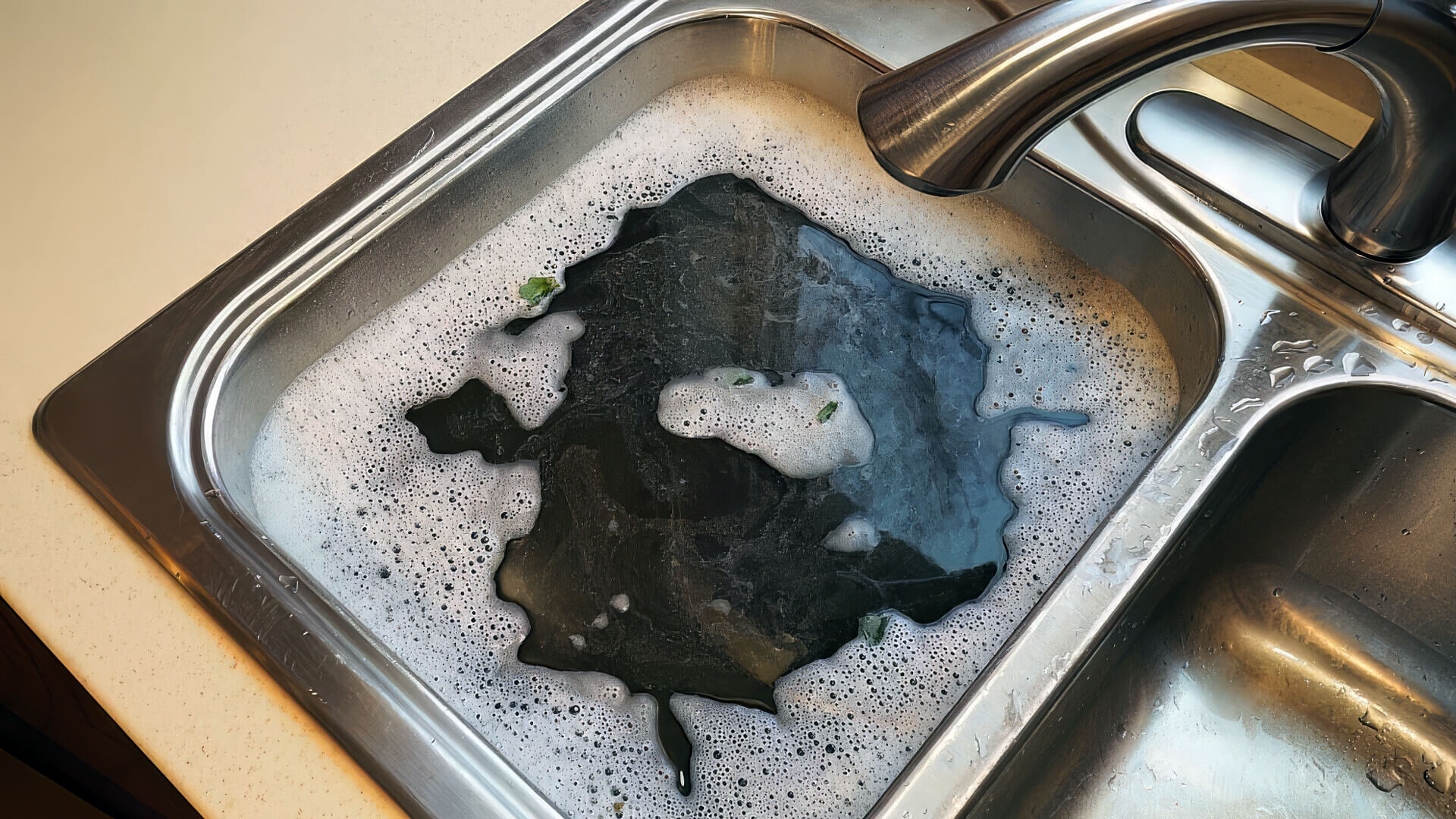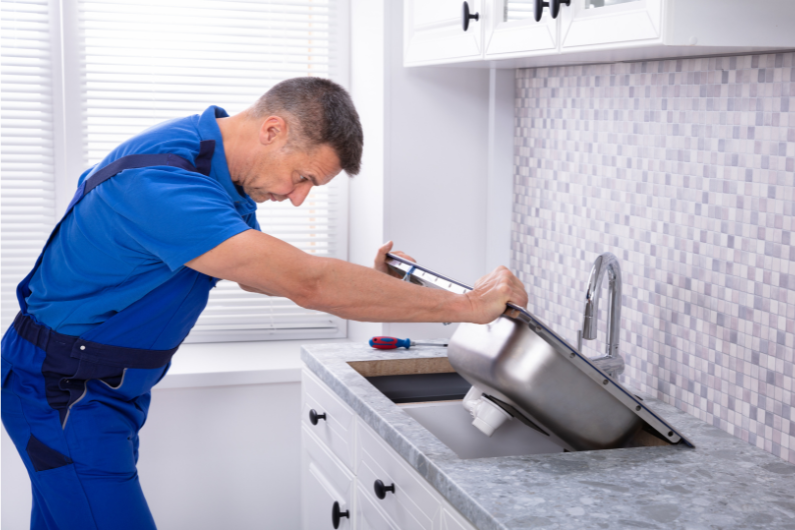Quick Methods To Fix A Slow-Draining Sink
Quick Methods To Fix A Slow-Draining Sink
Blog Article
What are your thoughts and feelings about 4 Tips to Fix a Slow Draining Sink?

Intro
We've all existed: You're brushing your teeth or cleaning your hands, and you observe the water pooling in the sink. Rather than quickly swirling away, it remains, transforming your once-refreshing morning regimen into a miniature overload scene. A slow-draining sink isn't just annoying; it's typically an indicator of bigger plumbing issues prowling below the surface. The good news is that a lot of slow-draining sinks can be repaired with a little know-how, a few basic devices, and some patience. Ready to tackle this project head-on? Allow's roll up our sleeves and dive right in.
Understanding the Root Causes Of a Slow-Draining Sink
Prior to you start poking around in your pipelines, it helps to recognize what could be triggering the stagnation. Understanding the root cause makes it simpler to choose the best repair.
Tools and Products You'll Need
The right devices make all the difference. Luckily, you won't need a totally stocked plumbing technician's van to do the job.
Step-by-Step Guide to Dealing With a Slow-Draining Sink
Now, let's get involved in the nitty-gritty. This detailed process will certainly direct you with easy strategies to restore your sink's drain.
Action 1: Get Rid Of and Tidy the Stopper
Usually, the stopper (that small plug you lower to block water) is the very first wrongdoer. Remove it very carefully and wipe any hair or crud trapped around its base. Rinse it completely prior to placing it back in position.
Action 2: Use a Plunger to Dislodge Debris
Got that plunger ready? Position it over the drain and give it a few firm pumps. The idea is to produce suction that can loosen any clog. If you see bits of debris floating up, you get on the ideal track.
Action 3: Try a Drain Serpent or Cable Hanger
If the plunger does not suffice, it's time to highlight the drainpipe serpent. Carefully feed it into the drainpipe and twist as you go. You could feel some resistance-- that's likely the obstruction. Keep turning and pulling till you eliminate the blockage. If you do not have a drain serpent, a corrected the alignment of cable wall mount can work in a pinch.
Step 4: Use a Do It Yourself Drain Cleanser
A natural cleaner made from cooking soft drink and vinegar can break down recurring crud. Pour half a mug of cooking soda into the drain, adhered to by half a mug of vinegar. Let it fizz for about 15 mins, after that flush with warm water. This chemical reaction commonly does wonders for small obstructions.
Tip 5: Reconstruct and Evaluate the Sink
Placed every little thing back with each other and run the tap. Does the water currently swirl away at a commendable speed? If yes, provide yourself a pat on the back. If not, do not anguish-- there are still a couple of even more tricks up your sleeve.
Necessary Tools for Do It Yourself Services
A bettor is your go-to starting point. A tiny, sink-sized bettor develops suction that can displace minor blockages. For more consistent clogs, a drainpipe serpent (sometimes called a plumbing's auger) functions marvels. A set of handwear covers, a flashlight, and perhaps a set of protective goggles are also useful.
Suggested Cleansing Solutions
Moderate meal soap and warm water can help break down greasy accumulation. A blend of baking soft drink and vinegar is a tried and true home remedy, and chemical cleansers provide an even more environment-friendly technique. Maintain chemical drain cleansers as a last hope, as they can be harsh on your pipes.
Usual Culprits Behind Slow Water Drainage
So, what's blocking points up? Normally, it's a mix of everyday debris-- think hair, soap residue, toothpaste deposit, and leftover food bits. In time, these tiny bits gather and cling to the pipeline wall surfaces, gradually narrowing the passage and making it harder for water to travel through. Sometimes, natural resource from hard water can likewise contribute to the gunk, creating the excellent storm for persistent blockages.
When is it Time to Act?
If you notice the water draining pipes slower than typical, it's a great idea to intervene earlier rather than later on. Waiting as well long could cause complete blockages, undesirable smells, and even pipe damages. If the water takes greater than a couple of seconds to remove after turning off the faucet, consider it a red flag and prepare yourself to place on your do it yourself hat.
Safety First: Safety Measures and Prep work
Before you launch into unclogging mode, think of safety. You're taking care of possibly filthy water and particles, so slip on a set of handwear covers. If you're making use of chemical cleansers, make sure the area is well-ventilated and follow the instructions on the tag.
Protective Gear and Workspace Configuration
Put down some old towels or rags around the sink location to capture splashes. Eliminate any kind of products that might get in your way, like soap dispensers or toothbrush holders. See to it you have excellent illumination-- get hold of a flashlight if needed.
Different Techniques for Stubborn Clogs
Not all obstructions are produced equivalent. If your sink still rejects to coordinate, take into consideration these different services.
Sodium Bicarbonate and Vinegar Technique
We currently discussed this, yet it deserves noting once more. This gentle, green technique is much safer than chemical cleaners and often rather effective.
Enzymatic Drain Cleaners
Enzyme-based cleaners make use of natural bacteria to digest raw material. They're a superb selection if you're aiming to avoid severe chemicals. Just keep in mind, they might take a bit longer to work their magic.
Chemical Drain Cleansers: Pros and Cons
Chemical cleansers can blow up through challenging obstructions quickly, however they're not without drawbacks. They can create heat and fumes, damages pipes if made use of excessively, and present ecological dangers. Utilize them moderately, and constantly comply with the instructions thoroughly.
Preventive Measures to Keep Your Sink Flowing
Prevention is the very best cure. By embracing a few straightforward routines, you can maintain your sink from reducing to begin with.
Normal Cleaning Behaviors
Wipe down the sink basin and fixture location consistently. Eliminate hair or food fragments before they have a chance to wash down the drainpipe.
Avoiding Unsafe Compounds Away
Hesitate prior to unloading coffee grounds, oil, or fibrous veggie scraps down the sink. These culprits cling to pipeline walls, creating clogs in time.
Regular Upkeep Checks
Arrange a fast month-to-month evaluation. Run warm water via the sink for a couple of mins, paying attention to the circulation. If it appears slow, act fast prior to it ends up being a full-on obstruction.
When to Call an Expert Plumbing Technician
Sometimes, regardless of exactly how tough you try, that clog just won't budge. That's when it's time to generate the pros.
Indicators That Show a More Severe Problem
If your sink drains gradually in spite of multiple efforts, or if you observe water backing up in various other components (like your shower or commode), you may have a much more major pipes problem prowling deeper in the system.
Balancing Do It Yourself Initiatives with Professional Assistance
While DIY can conserve you money and use a feeling of success, there's no embarassment in calling a specialist. A professional plumbing professional can evaluate your whole plumbing configuration, ensuring there's no underlying damage or long-term trouble that can cost you a lot more down the road.
Contrasting Expenses and Long-Term Solutions
Before making a decision, take into consideration the big picture. An affordable, quick fix might solve the trouble temporarily, but buying an extra long-term remedy could save you cash and tension over time.
Weighing the Costs of Do It Yourself vs. Expert Fixes
Do it yourself repairs usually set you back little bit more than the cost of a plunger or a container of cooking soft drink. Expert services, on the other hand, included a price tag however might avoid repetitive concerns and costly repair work later.
Buying Top Quality Fixtures and Upgrades
If your sink's design adds to regular clogs, it may be worth updating to higher-quality components or modifying the pipes format. Consider this a financial investment in your house's performance and comfort.
Final thought
A slow-draining sink can seem like a small inflammation, however it's commonly a sign that your plumbing requires a little tender loving care. By comprehending the origin, utilizing the right tools and methods, and devoting to basic safety nets, you can maintain your sink flowing easily. And when all else stops working, never wait to contact a specialist-- your home's plumbing is worth the financial investment in treatment and maintenance.
Three Common Ways to Fix a Slow Drain
Baking Soda Method
Boil a full pot of water. Measure out cup of baking soda and pour it down the drain. Then take cup of the magical cleansing substance known as white vinegar and drop that down there too. Allow the mixture to fizz in the drain for five minutes as the vinegar and baking soda combine. Now dump in that whole pot of boiling water. This combination of cleaning substances should clear out anything that is causing your sink to drain slowly. If it doesn t...
Zip-It
If the baking soda method doesn t clear out your drain, it may be because a significant amount of hair and/or other debris has collected there and you need to remove it. Purchase a Zip-It tool at any home improvement or hardware store and insert it into your drain. It will catch any collected hair or debris that s blocking the flow of water. Pull it out. If it s got a big clump of hair, etc. on the end, you ve probably got your culprit.
Drain Cleaner
If these methods don t work, there is the standard drain cleaner that you can also buy in a hardware store or even your local grocery store. It s better if you can use a household solution, but these drain cleaners often work in a pinch. They re very simple to use. You generally just dump them in your drain and wait. If even this method is not effective, it may be time to call the plumber.
https://www.mrrooter.com/oneida/about-us/blog/2017/july/three-common-ways-to-fix-a-slow-drain/

I'm just very drawn to and I'm hoping you enjoyed reading our entry. Feel free to take the time to share this post if you enjoyed reading it. I treasure your readership.
Call Today Report this page